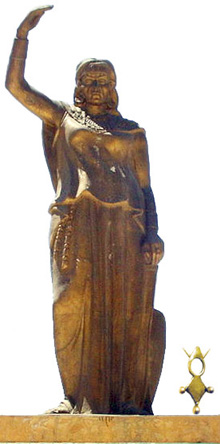Amazigh-State Relations in Morocco and Algeria
Finally getting around to posting my thesis. I've posted it as PDF below.
ABSTRACT:
As some of North Africa’s original inhabitants, the indigenous Amazigh population in
Morocco and Algeria has withstood waves of invaders to retain a distinct cultural and
linguistic identity that has persisted within—and despite—nearly fourteen centuries of
Arab rule. The emergence of Morocco and Algeria as modern nation-states following
their independence marked the beginning of an ongoing tension between each state and
its ethnic Amazigh minorities. With one state (i.e., Morocco) more inclusive and
progressive and the other more repressive and exclusionary (i.e., Algeria), what are the
factors that explain the different outcomes in both states?
This study compares the two movements in Algeria and Morocco by investigating
the relative salience of two central variables—that of each state’s institutions and the
behavior of its movements—on the outcomes for the Amazigh community. The major
finding is that state institutions stand as the most potent variable due to their ability to
channel movement strategies towards either militancy or accommodation. This power is
largely illustrated through Morocco’s reliance on cooptation as an initial response to
expressions of grievance that has produced a milder form of activism. In contrast, Algeria
has defaulted to a more repressive approach (to any dissent) that has produced a strident
activism with radical offshoots. Movement behavior continues to play a secondary role
that largely hinges on its ability to use globalization as an amplifying and mobilizing
instrument for international pressure.
https://docs.google.com/file/d/0B4BE1_xKfeEUTDlQc2c5UHRkVmc/edit?usp=sharing

